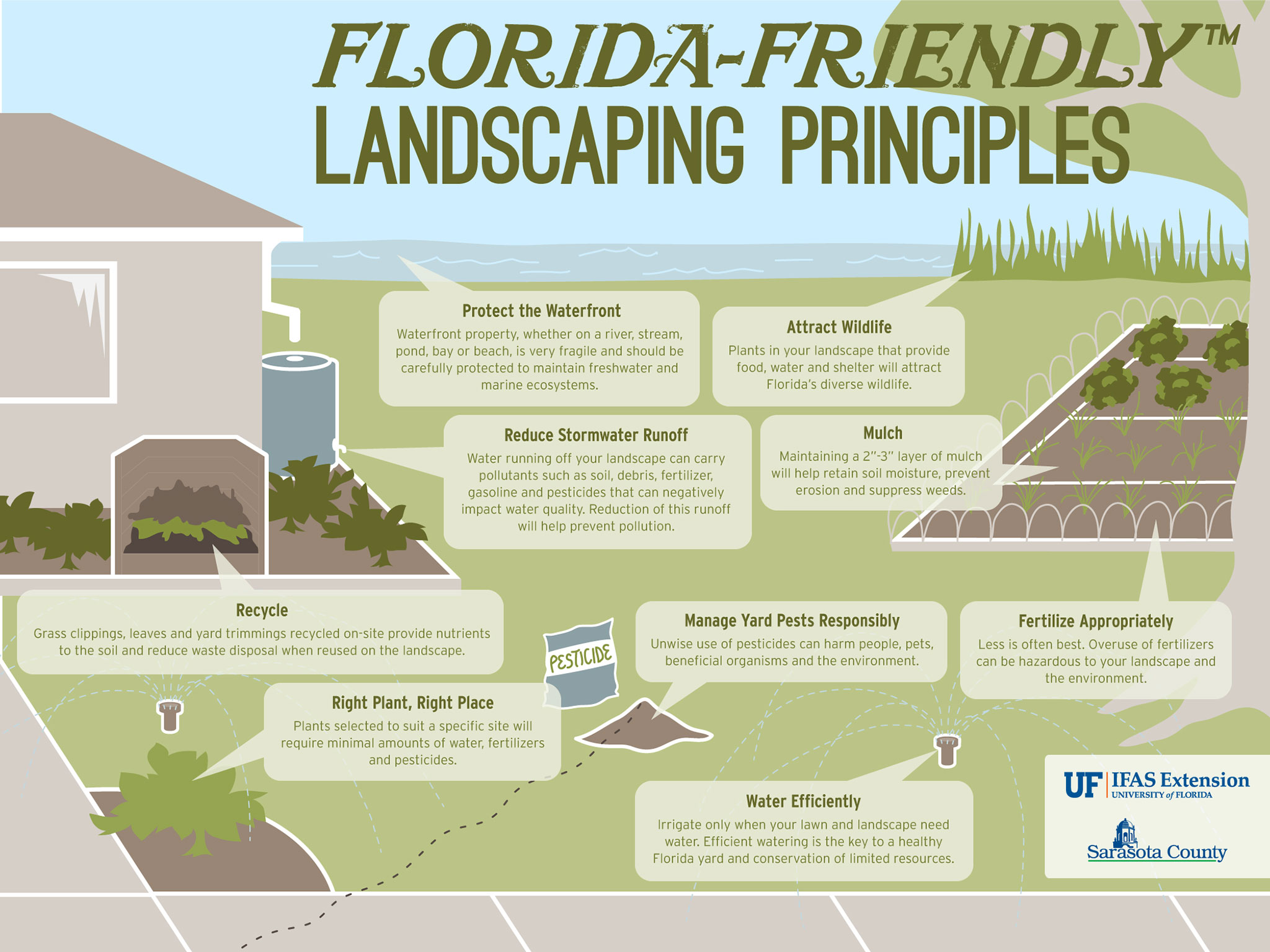With spring upon us, Florida homeowners are heading to plant sales and garden centers, working on projects to liven up their lawns and gardens, and making decisions about what to plant and where. These may seem like individual decisions based on personal taste, but there are outside factors that determine what should (and shouldn’t) belong in your home landscape.
Many homeowners like the look of a wide front lawn of lush, green, well-manicured turfgrass. But that “perfect” lawn can be expensive to maintain and requires irrigation, fertilizer and pesticides, which can put a strain on water resources and, when not applied appropriately, can damage the environment in ways that reach far beyond the front yard. Many local governments and community associations also impose seasonal limits on irrigation and fertilizer use.
As a result, homeowners are increasingly looking for landscape options that require less maintenance and are friendlier to Florida’s environment. To help people find these options, in 1994 UF/IFAS Extension partnered with the Department of Environmental Protection to develop the Florida-Friendly LandscapingTM (FFL) program. FFL promotes practices that reduce irrigation and fertilizer input, manage pests with less pesticide, recycle yard waste, reduce stormwater runoff, protect waterfronts, and attract pollinators and other wildlife to home landscapes.

However, some homeowners’ associations have been resistant to adopt FFL practices, arguing that they don’t fit with community plans and lower property values. In 2009, the Florida legislature passed a law stating that HOAs cannot prevent homeowners from practicing Florida-friendly landscaping. But this does not mean that homeowners are free to do whatever they want with their landscapes–they still need to gain approval from their HOA. Disputes between homeowners and HOAs over landscaping issues have resulted in costly legal battles where no one comes out the winner.
So, who or what ultimately determines what belongs in a home landscape? The homeowner, the environment, lawmakers, HOAs? How do we bring together contending viewpoints and find common ground that’s good for Florida’s residents, communities and the environment?
UF/IFAS Extension faculty and Florida Master Gardener volunteers deliver FFL throughout the state. They work directly with homeowners, community associations, developers, legal experts and landscape professionals to develop workable plans for healthy low-maintenance landscapes that are environmentally sustainable, while being pleasing to the eye and consistent with community standards.
Many of the conflicts between homeowners and property managers can be resolved with a better understanding of Florida-Friendly LandscapingTM. Contrary to myth, Florida-friendly landscaping does not mean letting your yard grow out naturally. With careful planning and maintenance, Florida-friendly landscapes are consistent with any community’s plan. At the same time, homeowners need to be familiar with their HOA’s landscaping rules, and work with their review boards to help them understand how an FFL yard can fit within community standards.
To help homeowners and community associations better understand what a Florida-friendly landscape looks like, UF/IFAS Extension provides workshops, educational resources, online CEUs, certification programs, architectural plans and recognition programs for Florida-friendly yards. Other FFL programs include:
- “FFL legally Speaking”—an annual seminar conducted with volunteer legal experts to address HOA and homeowner issues.
- Online CEUs for landscape architects, landscape professionals and community association managers.
- Green Industry Best Management Practices (GI-BMP) and FFL Certified Professional programs conducted with the Florida Nursery, Growers and Landscape Association to serve landscape professionals.
- Florida Water Star — a conservation certification program that certifies indoor and landscape water saving practices.
For Florida to remain a great place to live, homeowners and community associations need to communicate clearly with each other about what constitutes an ideal Florida landscape. By providing research-based information and expert advice, the Florida-Friendly LandscapingTM program serves as a guide and mediator so everyone can enjoy a beautiful Florida yard.
Learn more about Florida-Friendly LandscapingTM at https://ffl.ifas.ufl.edu.
 0
0
